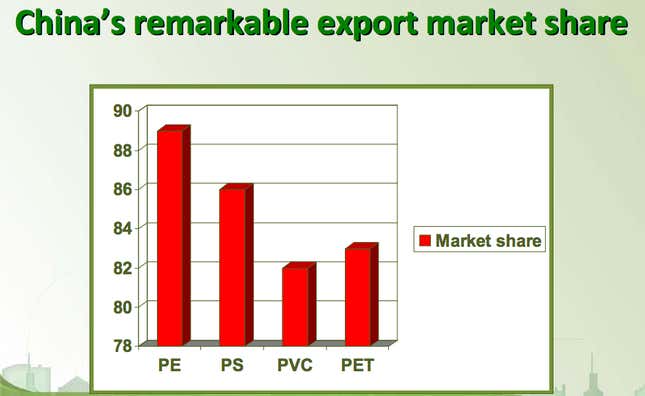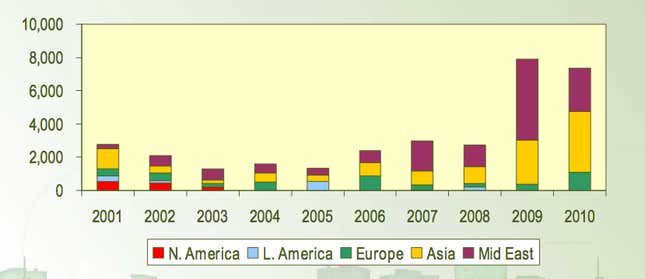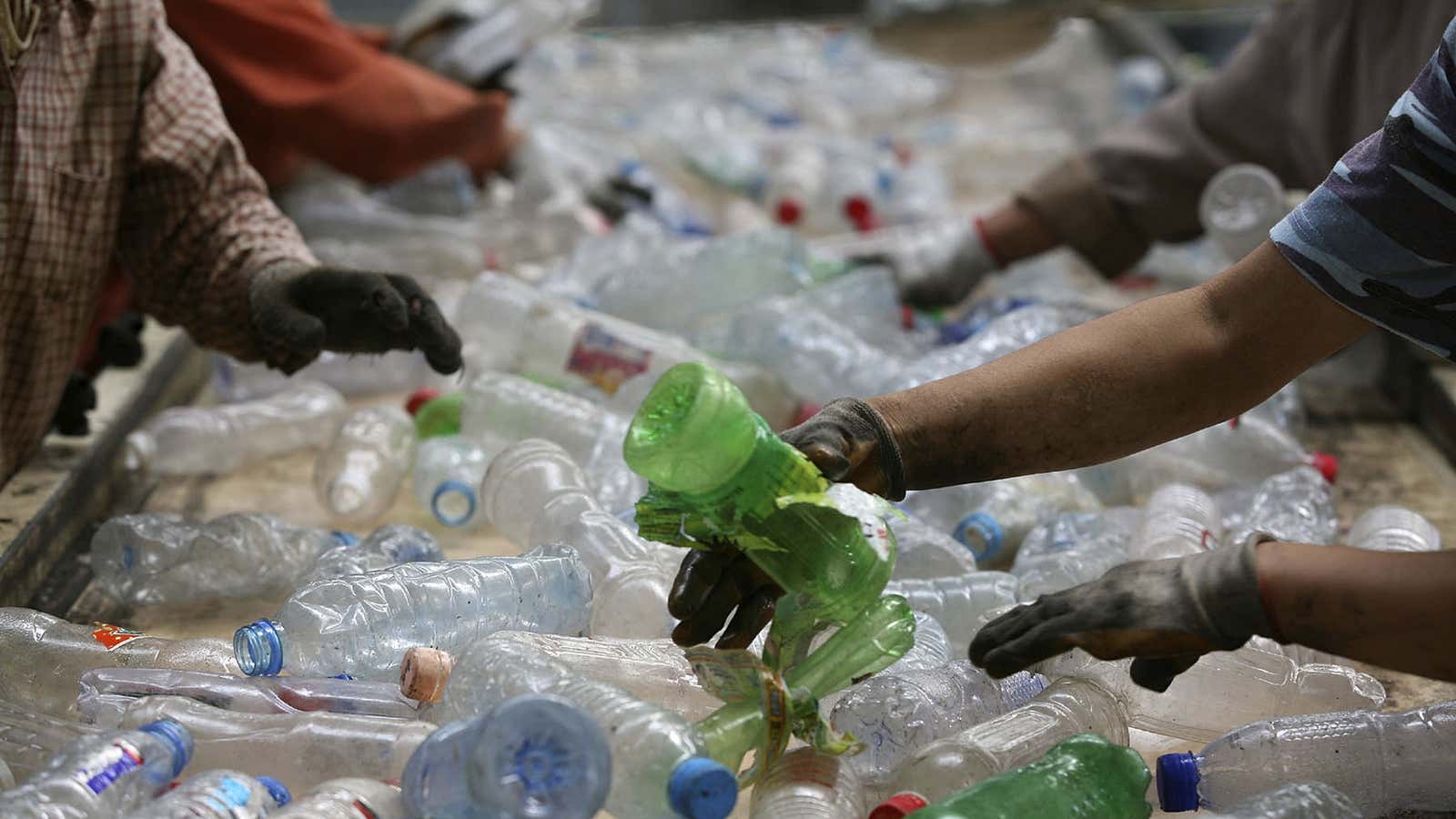As Americans carefully separate the paper and plastics from their trash, most probably don’t realize that their country doesn’t recycle stuff so much as export it to be recycled elsewhere. Specifically, to China. For more than five years, scrap and trash has consistently been the US’s biggest export (paywall), for which China is the number one customer, and the market has doubled in size since 2006.
“The public doesn’t realize this, but recycling is made possible by technology and markets—they think it’s just a matter of technology,” an industry insider with expertise in China’s waste management told Quartz. “And we don’t have strong enough markets in the US.”
But hints are emerging that American cities and the companies that sell trash are in for a rude awakening. A recent sign of this comes from Oregon, where truckloads of plastic are piling up at recycling depots because Chinese buyers cancelled their orders, as Oregon Public Broadcasting reports.
And it’s not just plastic from Oregon. American waste recycling companies are starting to panic. “What I’m hearing from folks in the industry, it’s that just that nothing is going,” the industry insider says. “[China’s] not taking anything anymore. It’s a greenwall.”
What’s going on is this: the Chinese government just launched Operation Green Fence, forbidding the import of certain types of solid waste, including unwashed plastics and other illegal waste mixed in with the good stuff. This is a problem for the US because China is the primary source of demand for its to-be-recycled plastic exports (pdf):

Of course, you can’t always tell how serious a Chinese government ban will be, and it’s not even clear why China would come down so aggressively. Despite its “trash mountain” woes, it actually needs the plastic resin for manufacturing.
Regardless, Green Fence looks like the real deal. Chinese ports have turned away “foreign garbage” by the hundreds upon thousands of tons (links in Chinese). “If China customs found a syringe, even if it’s just one, in a bale of plastic, it’s considered medical waste and the whole shipment would get rejected,” Peter Wang, CEO of recycling exporter America Chung Nam said at a conference recently.
The US’s reliance on China to buy up its plastic trash has meant that it’s neglected to keep developing its own plastic recycling capacity, as you can see:

The drop-off in Chinese demand, and the lack of immediately accessible alternatives, could hit American cities hard, says Quartz’s contact in the industry. “Cities are going to have a huge problem on their hands because they don’t know what to do with this stuff,” she says. “They have made commitments saying it’s recycled—but they didn’t say how or where.”
Not that the US couldn’t open new plants. But sorting trash to be recycled is labor-intensive, and therefore expensive. (The US’s failure to sort it properly is why China is turning US trash away.) And while optical sorters exist, those are expensive too. And either will raise costs for US cities.
